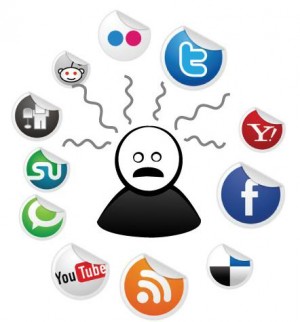Conditions of Media Effectiveness: Lazarsfeld and Merton say three conditions are required for media effectiveness: monopolization; canalization rather than change of basic values; and supplementary face-to-face contact. Monopolization occurs in the absence of mass media counterpropaganda. It exists not only in authoritarian societies but also in any society in which there is an absence of countering views on any issue, value, policy, or public image. Sometimes this near or complete absence is illustrated by the fact that when a “sacred” institution is questioned by the media, the article or program becomes the center of a storm of controversy and is remembered years later as an outstanding exception to the norm. An example is the CBS documentary “The Selling of the Pentagon,” which raised the question of what were termed “improper military information activities.” Many critics of the documentary generalized their criticism and said the program was an attack on the […]
Uses and Gratifications Theory
What does the Uses and Gratifications theory view? Uses and Gratifications Theory: One influential tradition in media research is referred to as ‘uses and gratifications’ (occasionally ‘needs and gratifications’). This approach focuses on why people use particular media rather than on content. In contrast to the concern of the ‘media effects’ tradition with ‘what media do to people’ (which assumes a homogeneous mass audience and a ‘hypodermic’ view of media), U & G can be seen as part of a broader trend amongst media researchers which is more concerned with ‘what people do with media’, allowing for a variety of responses and interpretations. However, some commentators have argued that gratifications could also be seen as effects: e.g. thrillers are likely to generate very similar responses amongst most viewers. And who could say that they never watch more TV than they had intended to? Watching TV helps to shape audience needs and expectations. U & G […]
Cultivation Theory
What does the Cultivation theory propose? Cultivation Theory: Explanation of Theory: Gerbner’s cultivation theory says that television has become the main source of storytelling in today’s society. Those who watch four or more hours a day are labeled heavy television viewers and those who view less than four hours per day, according to Gerbner are light viewers. Heavy viewers are exposed to more violence and therefore are effected by the Mean World Syndrome, an idea that the world is worse than it actually is. According to Gerbner, the overuse of television is creating a homogeneous and fearful populace. Metatheoretical Assumptions: Ontological Assumptions: determanistic——-X——free will Epistemological Assumptions: Truth——————X—————truths Axiological Assumptions: value neutral———X————value laden Individual Interpretations and Critique: The cultivation theory is a scientific theory. Epistimologically speaking, Gerbner believes in one truth. The theory does not believe television viewers have a choice in whether they are effected by media violence or not. […]
Theory of Spiral of Silence
Theory of Spiral of Silence: Elisabeth Noelle-Neumann, the German political scientist contributes the famous model called “Spiral of Silence”. In 1947 Neumann and her husband found “Public Opinion Organization” in German and also she was a President of “World Association for Public Opinion Research” in 1978 to 1980. Through this Spiral of Silence theory Neumann indirectly explains the Jews status during World War II under Nazi’s control. Here, Adolf Hitler dominated the whole society and the minority Jews became silent due to the fear of isolation or separation. Theory: The one view dominated the public scene and others disappeared from the public awareness as it adherents became silent. In other words, the people fear of separation or isolation those around them, they tend to keep their attitudes to themselves when they think they are in the minority. This process is called “Spiral of Silence”. Explanation of Theory: The Spiral of […]
Knowledge Gap Hypothesis
Knowledge Gap Hypothesis: Introduction: This theory is concerned mainly with “information” and “knowledge” and emphasizes that knowledge is not distributed equally throughout society. There are haves and have-nots with regard to information just as material wealth Information is very important in our society because any developed country depends on well-informed citizens. It appears certain that information will be even more important in the future as we move into an increasingly technological age. Many contemporary issues will require information and an informed public for the solutions for such issues. Role of mass communication: * One of the great promises of mass communication is that it provides people with information they need. * It has the potential of reaching people who have not been reached by other means (poor and undeveloped people). One example of an effort to use mass communication to provide information to the disadvantaged is the “educational TV program” […]
Priming Theory
What is priming? Explain the term scientifically. What is Priming Theory? If you have you ever heard a new word for the first time in your life and then suddenly noticed it popping up everywhere from the news to your grandmother’s dinner conversation, you know that the human brain can be primed to notice things that it ordinarily would completely overlook. The same thing happens when the press begins spending time on an issue that might ordinarily simmer on a back burner; once the issue becomes news, it tends to become relevant. When the public begins to view candidates in light of a particular issue that has been brought up by the media even though it was not a consideration prior to its introduction, it is an example of the priming effect. For example, in spite of the fact that no one cared about whether the candidates recycled just […]
